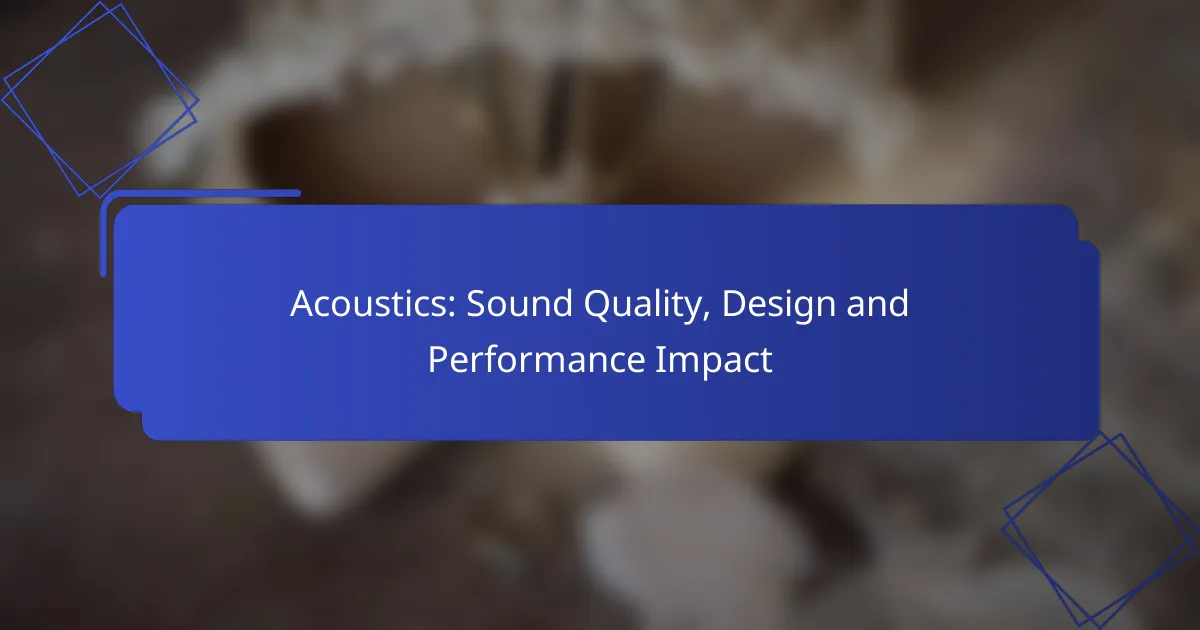Venue reputation plays a crucial role in influencing ticket sales and audience loyalty by shaping perceptions and expectations. A trusted venue not only attracts higher demand for events but also fosters meaningful connections with attendees, enhancing their overall experience. By consistently delivering quality and engaging with patrons, venues can build brand trust and encourage repeat attendance, ultimately driving sales and loyalty.

How does venue reputation impact ticket sales?
Venue reputation significantly influences ticket sales by shaping audience perceptions and expectations. A well-regarded venue often sees higher demand for events, as patrons are more likely to trust the quality of the experience offered.
Positive reviews increase sales
Positive reviews can greatly enhance ticket sales by building credibility and attracting new audiences. Venues that consistently receive favorable feedback from attendees tend to see a boost in ticket demand, as potential buyers are more inclined to purchase from a trusted source.
For example, a venue with a high rating on platforms like Yelp or TripAdvisor can expect to sell tickets more effectively than one with mediocre reviews. Engaging with customers and encouraging them to leave reviews can further amplify this effect.
Brand trust leads to repeat purchases
Brand trust plays a crucial role in fostering audience loyalty and repeat ticket purchases. When patrons have positive experiences at a venue, they are more likely to return for future events, contributing to sustained sales growth.
To build brand trust, venues should focus on delivering consistent quality in service, atmosphere, and event execution. Offering loyalty programs or discounts for returning customers can also incentivize repeat attendance and strengthen the relationship between the venue and its audience.

What strategies enhance audience loyalty?
Enhancing audience loyalty involves creating meaningful connections and providing value that resonates with attendees. Strategies such as engaging through social media and offering exclusive deals can significantly strengthen the bond between venues and their audiences.
Engagement through social media
Social media platforms are powerful tools for fostering audience loyalty. By actively engaging with followers through posts, comments, and live interactions, venues can create a sense of community and belonging. Regular updates about events, behind-the-scenes content, and interactive polls can keep audiences invested.
Consider using targeted campaigns that encourage audience participation, such as contests or user-generated content. This not only boosts engagement but also allows attendees to feel personally connected to the venue. Aim for consistent interaction, responding promptly to comments and messages to build trust.
Exclusive offers for loyal customers
Providing exclusive offers is an effective way to reward loyal customers and encourage repeat attendance. This can include early access to tickets, discounts, or special VIP experiences. Such incentives make loyal patrons feel valued and appreciated, enhancing their overall experience.
To implement this strategy, consider establishing a loyalty program that tracks customer purchases and rewards them accordingly. For example, a venue might offer a 10% discount after a customer attends five events. Ensure that these offers are communicated clearly through email newsletters or social media to maximize their impact.

How can venues build brand trust?
Venues can build brand trust by consistently delivering high-quality experiences and maintaining open communication with their patrons. These practices foster loyalty and encourage repeat attendance, ultimately boosting ticket sales.
Consistent quality of events
To establish brand trust, venues must prioritize the consistent quality of their events. This includes ensuring that performances meet audience expectations in terms of production value, talent, and overall experience. A venue that regularly hosts well-reviewed events is more likely to cultivate a loyal customer base.
Consider implementing a feedback system to gather audience opinions after events. This can help identify areas for improvement and reinforce a commitment to quality. Regularly updating equipment and facilities can also enhance the overall experience.
Transparent communication with patrons
Transparent communication is essential for building trust with patrons. Venues should provide clear information about event details, ticket pricing, and any changes that may occur. This openness helps to manage expectations and reduces potential frustrations.
Utilizing multiple communication channels, such as social media, email newsletters, and official websites, can ensure that patrons receive timely updates. Additionally, being responsive to inquiries and concerns can further strengthen the relationship between the venue and its audience.

What role does social proof play in venue reputation?
Social proof significantly influences venue reputation by shaping public perception and trust. When potential attendees see positive endorsements or reviews, they are more likely to feel confident in their choice, leading to increased ticket sales and audience loyalty.
Influencer endorsements
Influencer endorsements can greatly enhance a venue’s reputation by leveraging the trust that followers place in these figures. When a well-known personality promotes an event or venue, it can attract a wider audience and create a buzz that drives ticket sales.
To maximize the impact of influencer partnerships, venues should select influencers whose audience aligns with their target demographic. This ensures that the endorsement resonates and encourages potential attendees to engage with the venue.
Customer testimonials and reviews
Customer testimonials and reviews serve as powerful forms of social proof that can bolster a venue’s reputation. Positive feedback from past attendees can influence new customers’ decisions, making them more likely to purchase tickets.
Venues should actively encourage satisfied customers to leave reviews on platforms such as Google, Yelp, or social media. Highlighting these testimonials on the venue’s website and promotional materials can further enhance credibility and attract more visitors.

What are the key metrics for measuring venue reputation?
Key metrics for measuring venue reputation include Net Promoter Score (NPS) and customer satisfaction surveys. These metrics provide insights into audience perceptions, loyalty, and overall satisfaction, which are crucial for driving ticket sales and building brand trust.
Net Promoter Score (NPS)
Net Promoter Score (NPS) gauges customer loyalty by asking attendees how likely they are to recommend the venue to others on a scale from 0 to 10. Scores are categorized into promoters, passives, and detractors, allowing venues to assess their overall reputation and identify areas for improvement.
A typical NPS score ranges from -100 to +100, with higher scores indicating stronger loyalty. Venues should aim for a score above 50 to be considered excellent. Regularly measuring NPS helps track changes in audience sentiment over time.
Customer satisfaction surveys
Customer satisfaction surveys collect feedback on various aspects of the venue experience, such as cleanliness, staff friendliness, and event quality. These surveys can be conducted online or in-person and typically include both quantitative ratings and qualitative comments.
To maximize the effectiveness of these surveys, venues should keep them concise and focused, ideally taking no more than 5-10 minutes to complete. Analyzing survey results can reveal trends and specific areas that need attention, helping to enhance the overall audience experience and loyalty.

How do major cities influence venue reputation?
Major cities significantly impact venue reputation by creating a competitive landscape that shapes brand trust, ticket sales, and audience loyalty. Venues in urban areas often face higher expectations and must adapt to diverse audience needs to thrive.
Higher competition in urban areas
Urban venues typically encounter fierce competition, which can enhance their reputation if they successfully differentiate themselves. With numerous options available, venues must focus on quality service, unique experiences, and effective marketing strategies to attract patrons.
For example, a concert hall in a major city might offer exclusive artist meet-and-greets or premium seating options to stand out. This competitive edge can lead to increased ticket sales and stronger audience loyalty.
Access to diverse audiences
Major cities provide venues with access to a wide range of demographics, allowing them to cater to various tastes and preferences. This diversity can boost ticket sales as venues host events that appeal to different cultural backgrounds and interests.
For instance, a venue that regularly features international artists or hosts multicultural festivals can attract a broader audience, enhancing its reputation as an inclusive space. Engaging with local communities through targeted marketing can further solidify audience loyalty and brand trust.

What emerging trends affect venue reputation?
Emerging trends significantly influence venue reputation, impacting brand trust, ticket sales, and audience loyalty. Factors such as sustainability practices, technology integration, and community engagement are reshaping how venues are perceived and valued by patrons.
Sustainability practices
Sustainability practices are increasingly vital for venues aiming to enhance their reputation. Implementing eco-friendly initiatives, such as waste reduction, energy efficiency, and sustainable sourcing, can attract environmentally conscious audiences and build trust in the brand.
For example, venues can adopt practices like using renewable energy sources, offering plant-based food options, and minimizing single-use plastics. These efforts not only appeal to a growing demographic of eco-aware consumers but can also lead to cost savings in the long run.
To effectively implement sustainability, venues should assess their current practices, set achievable goals, and communicate their progress transparently. Engaging with local communities and stakeholders can further enhance credibility and foster loyalty among patrons who value sustainability.



